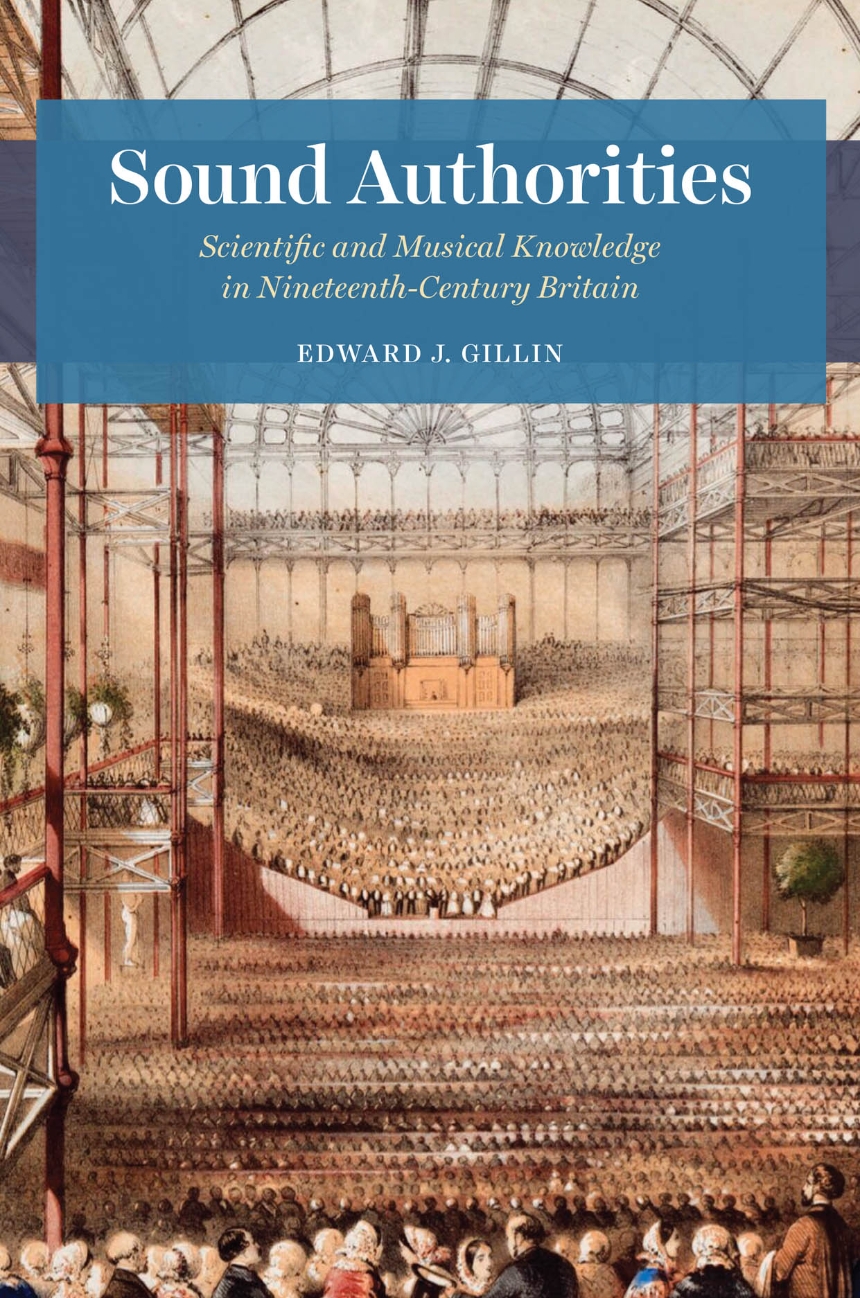Sound Authorities
Scientific and Musical Knowledge in Nineteenth-Century Britain
Sound Authorities
Scientific and Musical Knowledge in Nineteenth-Century Britain
Sound Authorities shows how experiences of music and sound played a crucial role in nineteenth-century scientific inquiry in Britain.
In Sound Authorities, Edward J. Gillin focuses on hearing and aurality in Victorian Britain, claiming that the development of the natural sciences in this era cannot be understood without attending to the study of sound and music.
During this time, scientific practitioners attempted to fashion themselves as authorities on sonorous phenomena, coming into conflict with traditional musical elites as well as religious bodies. Gillin pays attention to sound in both musical and nonmusical contexts, specifically the cacophony of British industrialization. Sound Authorities begins with the place of acoustics in early nineteenth-century London, examining scientific exhibitions, lectures, spectacles, workshops, laboratories, and showrooms. He goes on to explore how mathematicians mobilized sound in their understanding of natural laws and their vision of a harmonious ordered universe. In closing, Gillin delves into the era’s religious and metaphysical debates over the place of music (and humanity) in nature, the relationship between music and the divine, and the tensions between spiritualist understandings of sound and scientific ones.
320 pages | 33 halftones, 4 tables | 6 x 9 | © 2021
History: British and Irish History
Music: General Music
Reviews
Table of Contents
Introduction: Sounds and Sweet Airs: Science, Sound, and Music in Britain, 1815–1914
Part I Experiments and Mathematics: The Making of Sound as a Scientific Object
Chapter 1 The Laboratory of Harmony: The Transformation of Sound within British Science, 1815–46
Chapter 2 A Harmonious Universe: Herschel, Whewell, Somerville, and the Place of Sound in British Mathematics, 1830–70
Part II Contesting Knowledge: Mathematicians, Musicians, and Sound Measurements
Chapter 3 The Problem of Pitch: Mathematical Authority and the Mid-Victorian Search for a Musical Standard
Chapter 4 Accuracy and Audibility: Mathematics, Musical Consensus, and the Unreliability of Sound, 1835–81
Part III Materialism and Morality: Religious Authority and the Science of Sound
Chapter 5 Musical Matter: Religious Authority, John Tyndall, and the Challenge of Materialism, 1859–1914
Epilogue: Musical Spiders and Sounds Scientific in the Modern Age
Acknowledgments
Notes
Select Bibliography
Index
